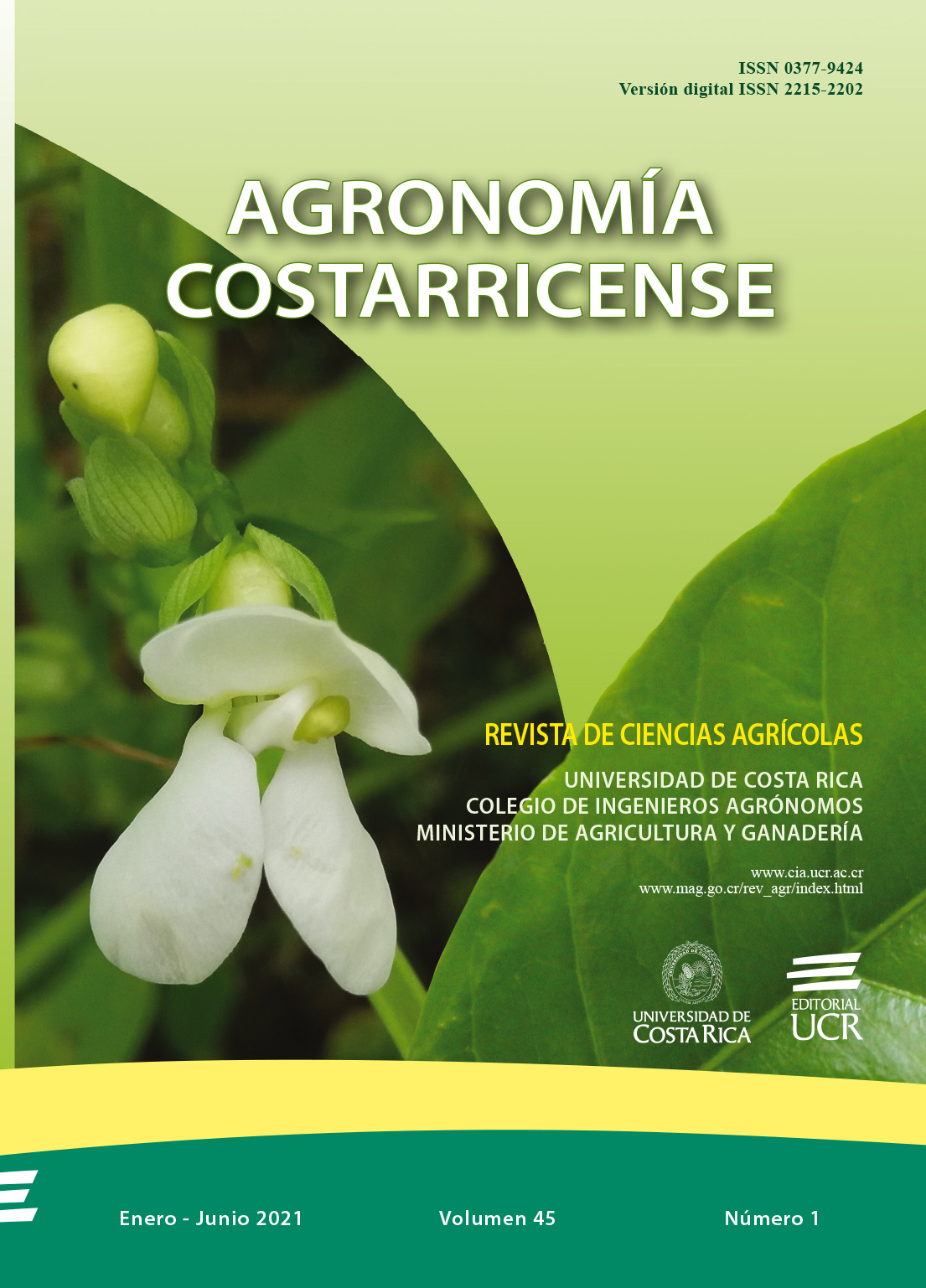Abstract
Introduction. Yeasts, lactic acid and acetic acid bacteria, involved in cocoa fermentation are responsible for consuming the compounds in the pulp to develop flavor precursors within the cocoa bean. However, cocoa fermentation is difficult to control due to the complexity of this process and the multiple variables that affect it, including the genetics of the crop. Objective. To analyze the biochemical transformations of different genetic groups of cocoa (Theobroma cacao L.) during a controlled micro-fermentation. Materials and methods. A micro-fermentation methodology was developed with a starter culture of H. opuntiae and Acetobacter spp. in 4 genetic groups, grown in the CATIE Clonal Garden and hybrids from different farms in the Upala area. Throughout the fermentation process glucose, fructose, ethanol, lactic acid and acetic acid were analyzed in pulp, and methylxanthines (theobromine and caffeine) and (-)-epicatechin in the bean. Results. No significant differences were found in the content and dynamics of sugars, organic acids and ethanol in pulp throughout the fermentation, but differences were found at fermentation time. A decrease in methylxanthines and epicatechin triggered by enzymatic and non- enzymatic reactions was observed. The average epicatechin content proved to be the distinctive compound between CATIE´s genetic groups and caffeine in commercial cocoa. Conclusion. The methodology used had a regulatory effect on the behavior of some of the studied metabolites in pulp of different genetic throughout fermentation, as well as epicatechin and methylxanthines in the bean.


